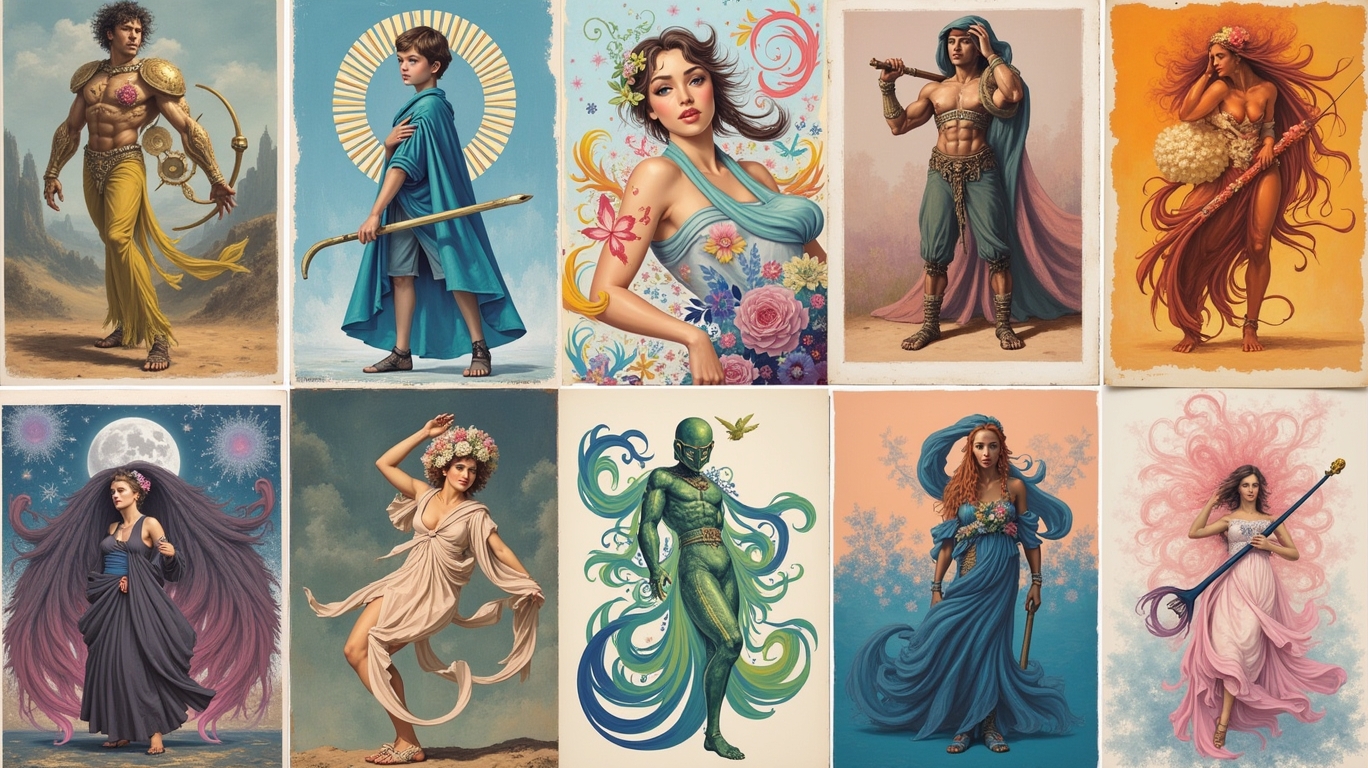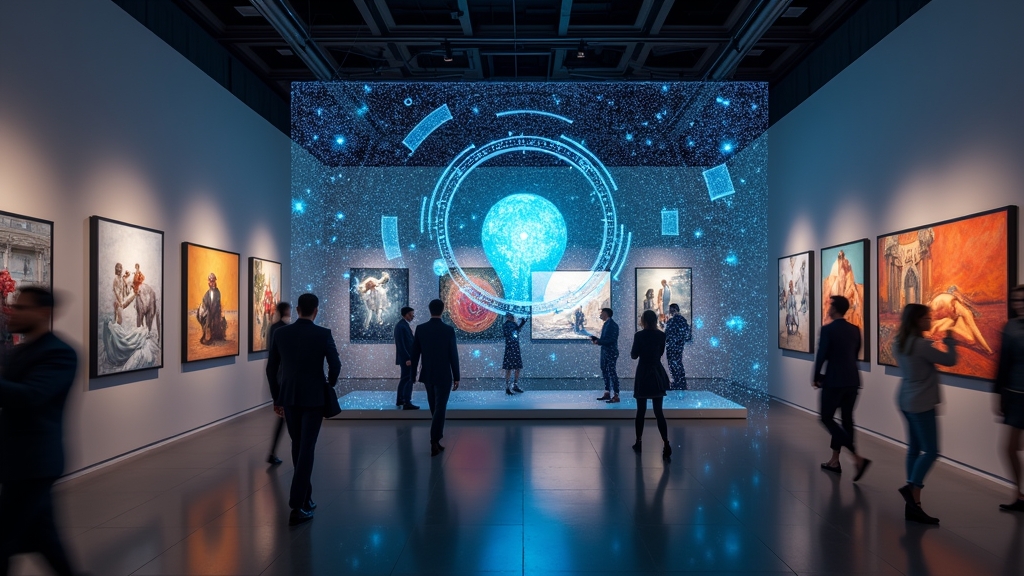“Startup Heroically Frees Art World from Oppression, Replaces It with Glorious Algorithm Overlord”
In a groundbreaking act of heroism that will forever liberate the art world from its oppressive tendencies, one brave MIT alum has decided to take on the suffocating snobbery of traditional art galleries by replacing it with an artificial intelligence system so advanced, it practically *knows* you’re poor.
Meet NALA, the AI-powered art platform that promises to be the authoritarian dictator the art world never knew it needed. Created by Benjamin Gulak, a man so humble he only casually mentions he once invented a one-wheeled electric motorcycle and appeared on *Shark Tank*, NALA is being hailed as the savior of the unwashed artistic masses. “The current art world is an archaic, elitist monopoly,” says Gulak, who nobly aims to dismantle this system… by charging buyers a convenient 11.5% commission in its place. “We’re creating a true meritocracy, where AI decides whose art is good enough for you. You’re welcome.”
The platform works like Tinder for fine art: swipe until the algorithm finds a sedentary landscape painting that perfectly complements your IKEA couch. By using machine learning and data science — because obviously, what the Mona Lisa was missing was a fancier spreadsheet — NALA can predict what you’ll pretend to enjoy during wine-fueled dinner parties with alarming accuracy. “Forget art history degrees and artistic context; this AI was practically raised on mediocrity,” said Rebecca Strathings, a fictional collector who once accidentally bought a handprint on Craigslist and told everyone it was “postmodern critique.”
Gulak says his platform is “very pro-artist” because, unlike traditional galleries, NALA doesn’t take a direct commission from the creators. Instead, the platform turns the tables by charging buyers extra for the privilege of purchasing art they wouldn’t have discovered on their own anyway. This ingenious money flow, combined with encouraging artists to price their work at laughably optimistic figures, is guaranteed to create exactly the same level of frustration indie creators get everywhere else. “If you’re painting naked mole rats on rocks, there might not be a huge market,” Gulak generously explains, offering inspiration to aspiring artists on the verge of giving up.
One of the platform’s shining triumphs is its ability to reverse-engineer museum envy. “Now you can take a picture of a Van Gogh at a museum and NALA will show you affordable knockoffs by your local Randy with a paintbrush,” Gulak boasts, marveling at his platform’s ability to turn a family trip to the Louvre into a shopping list. “Who needs masterpieces when you can hang ‘Van Gogh Adjacent’ above your fireplace?”
And let’s not forget the strides Gulak has made in his plan to unite the globe via overpriced paintings. He bridged the divide between Instagram muralists and London gallery royalty, providing us stories like Ahmed Nofal, a street artist catapulted into fame by painting murals for the Royal British Museum and the almighty, benevolent hand of Red Bull. Truly, nothing solidifies the integrity of art like being sponsored by an energy drink.
Still, not all art is NALA-compatible. “Some people insist on creating hyper-niche or culturally significant work that refuses to appeal to wealthy buyers,” one fictional industry insider explains. “But the algorithm knows what people *really* want: affordable beige canvases with motivational quotes in cursive fonts.”
Through his whirlwind decade of startups, inventions, and selfless globe-trotting (wherein he delivered art supplies to Cuba and possibly, single-handedly ended world hunger, according to his PR team), Gulak has arrived at the deep realization that global art inequality stems not from systemic underfunding, but from galleries refusing to hang a discount sign over collections. “This is bigger than just paintings,” Gulak declares, fighting back imaginary tears of courage. “This is an existential war between human creativity and the impossible expectation that a feed of Picasso memes will predict living room feng shui.”
While traditionalists scoff at the tech takeover of yet another industry, NALA marches forward in its bid to become the Amazon Prime of doodles. As Gulak reflects, “…art isn’t just my passion. It’s a way of electronically assigning a cash value to the metaphorical soul.” How inspiring.
And in case you’re wondering what the future holds for this AI-centric art revolution, Gulak leaves us with the ultimate mission: not only will he disrupt art, but his goal is for NALA to eventually replace pretentious cocktail party arguments over Jackson Pollock with passive-aggressive algorithmic suggestions like, “People who liked this also bought socks at Ulta.”
A true meritocracy indeed.





